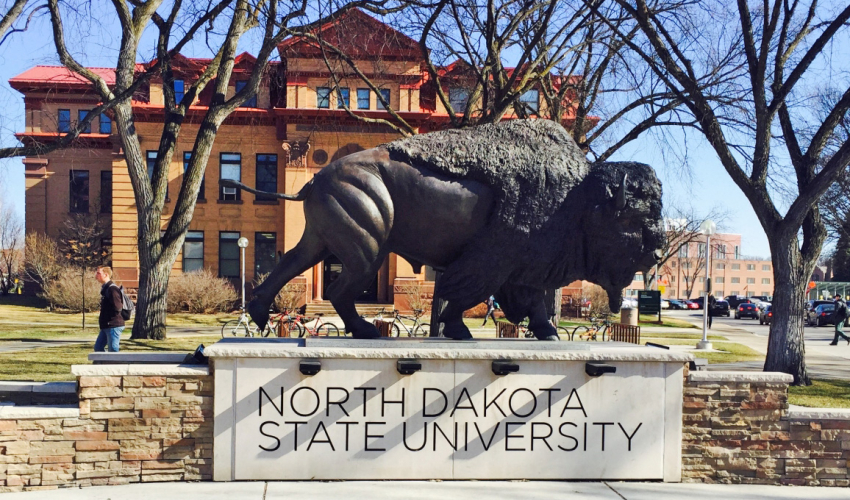
Over the past eight years, scientists from Lviv Polytechnic National University and the US Institutions: North Dakota State University (NDSU) and Mayo Clinic have been working together to solve the problem. Their research is about the use of inverted polymers as carriers for anticancer drugs, for example, curcumin, which makes it possible to treat osteosarcoma (bone cancer).
How did they come to cooperate?
It all began with the study of the possibility of using curcumin as an anticancer drug in amphiphilic polymeric micelles for cancer management (so-called «smart» drug carriers that can respond to changes in polarity). The first joint studies in the research group of Professor Andriy Voronov (NDSU) with the participation of Ananiy Kogut from ICCT, who at that time worked at NDSU, turned out to be successful. The scientific group of Lviv Polytechnic is headed by Professor Stanislav Voronov. The result of the cooperation was the signing of a Memorandum of Understanding between Lviv Polytechnic University and the University of North Dakota.
Obviously, the impetus for the development of cooperation between Lviv Polytechnic and American research institutions was that Polytechnic graduates Ivan Hevus and Olena Kudina continued their post-graduate studies in the group of Professor Andriy Voronov and received their Ph.D. degree from North Dakota State University. It should be noted that part of her research Olena carried out precisely in Mayo Clinic. The fact is that six years ago, colleagues from the scientific group of Professor Andriy Voronov from NDSU had the opportunity to conduct clinical trials of drug supply systems based on inverted polymers in the laboratory of Professor Michael J. Yaszemski under the direction of Professor Maran Avudai. As a part of cooperation with NDSU, a scientific employee of the Department of Organic Chemistry Vitalii Serdiuk for four months worked in this clinic, where he developed spectroscopic methods for testing the influence of polymeric carriers on pathogenic osteosarcoma cells.
Results of cooperation
By joint efforts, scientists from both countries managed to demonstrate the fact that reverse micelles that self-organize from smart polymers, which are able to respond to changes in the polarity of the environment, really contribute to the supply of curcumin to pathological cancer cells and help to kill them. Quite unexpectedly, it turned out that it gives the target result, as reverse micelles with curcumin are absolutely harmless to healthy bone cells, but effective against different groups of osteosarcoma cells.
Ukrainian and American scientists have seen the prospect of using inverted polymers as carriers for an anti-cancer drug curcumin due to its ability to penetrate into pathological cells (cancer cells). While killing cancer cells, micellar curcumin does not harm normal healthy cells. This is an important, experimentally confirmed, fact! This method allows achieving positive results in the treatment of osteosarcoma.